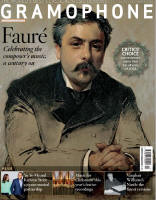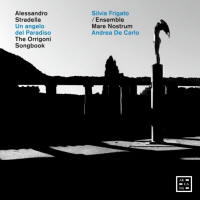Texte paru dans: / Appeared in:
|
|
|
|
|
|
Alessandro Stradella’s life reads like a modern-day novel by Donna Leon, since his brief biography includes fleeing from matchmaking troubles and surviving an assassination attempt. Yet just two years after his near-death experience, in 1679, the Genoese aristocracy were entertained by three of Stradella’s new operas at the Teatro Falcone. The running assumption of this extraordinarily delightful new album is that castrato Marc’Antonio Orrigoni was in the title-role for each opera. Stradella admired him so much that in one letter to a patron he compared Orrigoni’s acting to an angel from paradise – thus the title of the album and the reasoning behind an imagined songbook of Orrigoni’s great aria collection.
In particular, Stradella praised the company of the Falcone musicians, and in the same vein I praise Ensemble Mare Nostrum, who are quite excellent accompanists in the arias and energetic performers in their sinfonias. Listen for the Sinfonia avanti l’opera for La forza dell’amor paterno to hear them at their level best. The opening is a complex set of fugal entries played with great confidence and clarity. I particularly admire the bright edge to the tone of violinists Gabriele Pro and Domenico Scicchitano: their nimble quality sings throughout this programme.
Speaking of singing, the partnership with soprano Silvia Frigato is tight and this album is rightfully as much a vehicle for her artistry as the original arias were for Orrigoni’s. Her emotional range is quite thrilling: consider Muzio’s aria ‘Sorte crudele d’amor m’allettò’ (‘Cruel Fate with love enticed me’) from Le garre dell’amor eroico, which has a long sense of line yet maintains a characterful bite to the words. Compare this with the vocal fireworks in Antioco’s rabble-rousing aria ‘Non vedi che Giove’ (‘See you not that Jove’) from La forza dell’amor paterno and it’s hard to believe that this is the same voice. Even-toned throughout her range and bitingly clear with each call to arms at ‘All’armi, a battaglia’, it’s impossible not to feel as agitated as the bass line in this delicious aria.
Do listen out for the Sarabanda, Balletto delle Furie and Balletto d’Amorini, Sarabanda, Presto from Il novello Giasone, which are stylish in the extreme. Yet for me, the ‘angel from paradise’ bit is in the music from the oratorio Susanna – in particular, the lament ‘Da chi spero aita, oh cieli’ (‘From whom do I hope for aid, O heavens’), which has the essential ingredients of both a soaring vocal line and a descending bass. Frigato is devastatingly good. Frankly, if Andrea De Carlo’s Stradella project isn’t already on your radar, this selection makes a very good place to start. |
|




